Best bass pickups 2026: Improve your bass sound with options from Fender, Aguilar, Seymour Duncan and more
Step up your bottom-end game with our expert selection of pickups for upgrading your bass
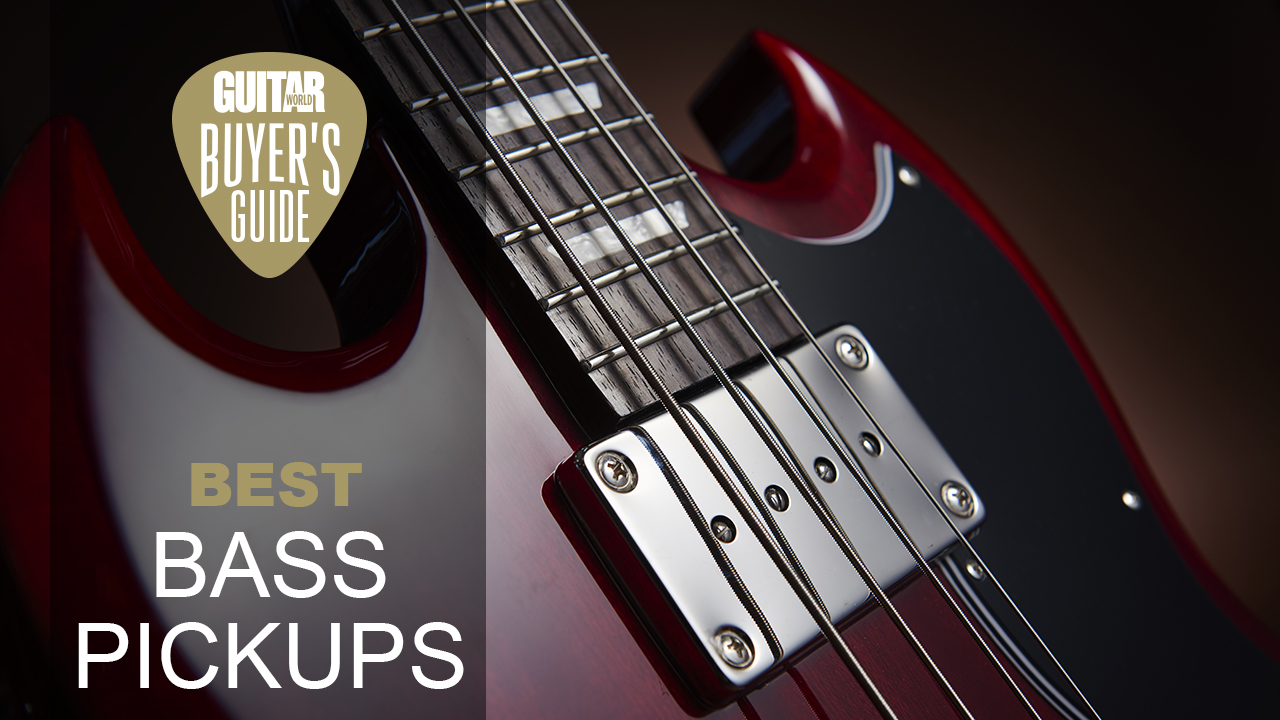
1. Our top picks
2. Full product guide
3. Buying advice
4. How we choose
One of the most common ways of improving the sound of your bass is by upgrading the pickups. Whether you’re rocking a basic, budget model and you want to enhance the sound, or you just fancy a different kind of tone without going all-in on an all-new instrument, the best bass pickups can instantly freshen things up.
You also can boost the output of your bass by fitting it with a new pickup or two. You can add warmth or brightness; change how it reacts to your playing and more. Installing new bass pickups can really transform an instrument into something new.
From old-fashioned Precision rumble to active metal machines, there’s something in this guide for everyone. We’ve picked out the best bass pickups to cater for all types of player, style of music and budget.
And if you want to learn more before taking the plunge, we've got some expert buying advice towards the bottom of the page.

After spending a decade in music retail, Richard is now a freelance writer for Guitar World, MusicRadar, Guitar Player and Reverb, specialising in electric and acoustic guitars, bass, and almost anything else you can make a tune with. When his head’s not buried in the best of modern and vintage gear, he runs a small company helping musicians with songwriting, production and performance, and he also plays bass in an alt-rock band. For this guide Richard got stuck into the w
Best bass pickups: Guitar World recommends
The best bass pickup for you is going to depend on what bass you’re actually using. In terms of versatility, we love a PJ set-up, and the Aguilar DCB-PJ is a great example of this. They’re quite hot in terms of output, so they really pack a powerful punch, but they’re still dynamic and have lots of warmth.
If you’re strictly a Precision player, then the Fender Pure Vintage 63 pickup lets you get the sound and response of an original ’60s P-bass, without the vintage price tag. The Lace Sensor Aluma bass pickup is also a really cool option if you’re after something a little different. They’re also really light, and have different models for different styles of bass.
Best bass pickups: Product guide
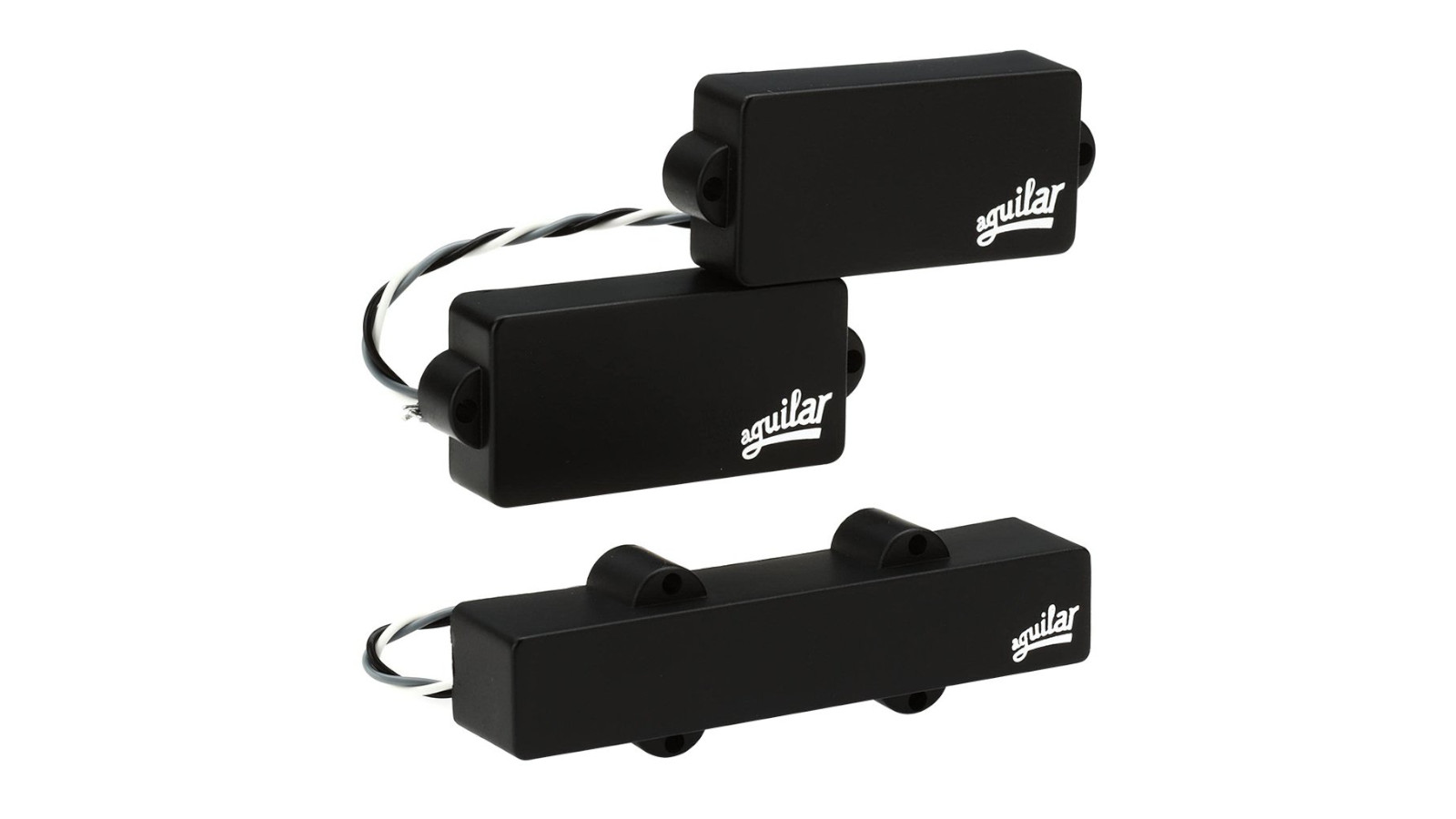
1. Aguilar DCB-PJ Hum Canceling PJ
Our expert review:
Specifications
Reasons to buy
Reasons to avoid
Aguilar makes some incredible bass products, including amps, pedals and pickups. This PJ set gives you the best of both worlds from the two biggest players in the bass world – the Precision and the Jazz bass, with a modernized twist.
These are punchy, clear pickups with loads of body and sustain. They’re higher output than what you might normally get with stock P or J pickups, so they can really pack a punch. If you’re looking for a PJ set to push the front end of an amp with, then these will work really well. These can sound super aggressive so will likely suit any sort of rock player. You don’t lose out on dynamics or articulation though, so you’re still heard clearly and you can play with expression.
They’re also hum-cancelling, so you don’t need to worry about annoying 60-cycle hum. Whether you’re recording or playing live, this is one of the best bass pickup sets going.
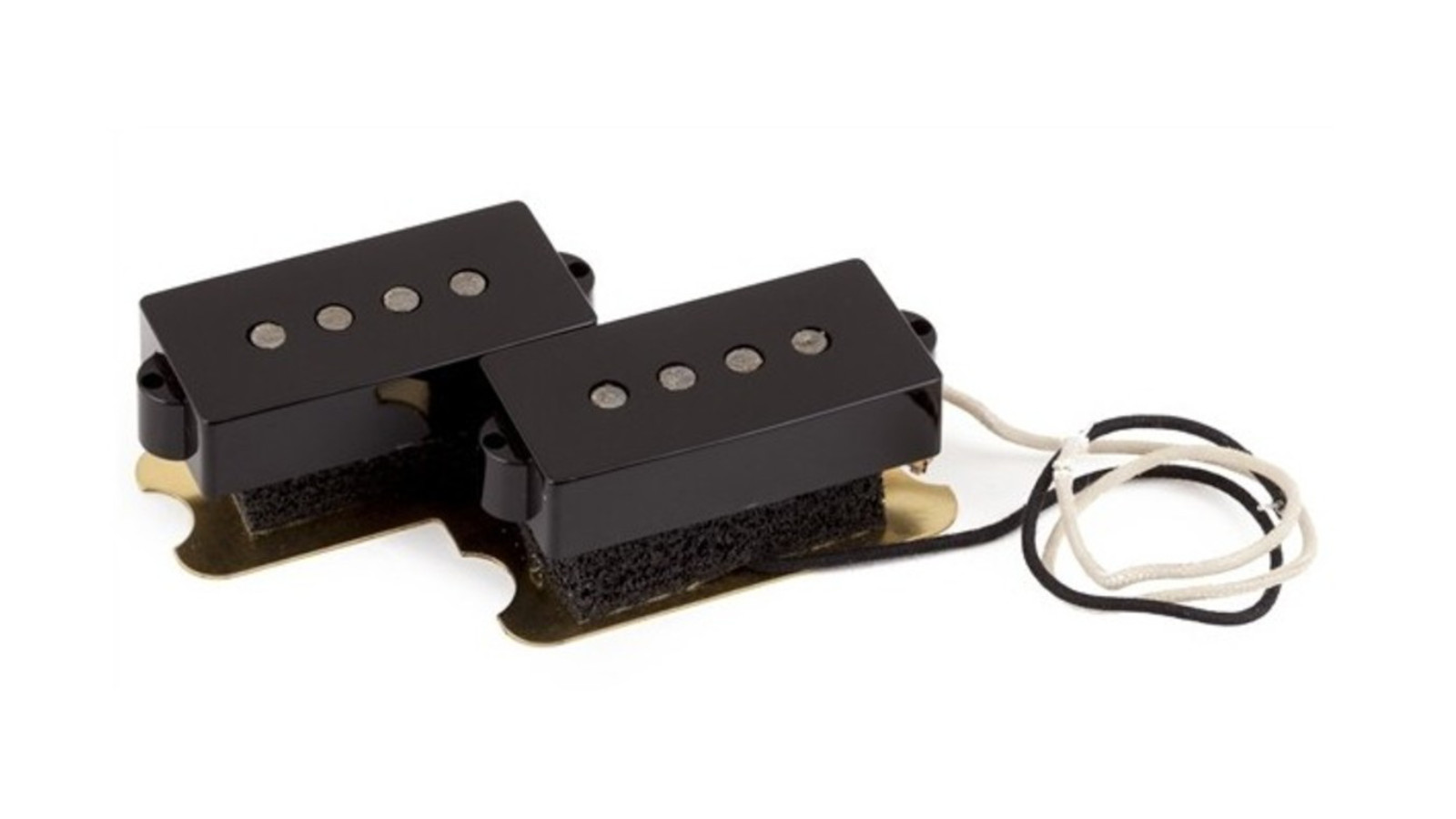
2. Fender Pure Vintage 63 P-Bass
Our expert review:
Specifications
Reasons to buy
Reasons to avoid
Get the mighty low end of a ’60s P-Bass with this set of Pure Vintage pickups. Using vintage bobbins and genuine original-era cloth wiring, Fender have matched the specs of those ’60s models to create a pickup that can deliver authentic vintage tone.
The Alnico 5 magnets used help give a really focused sound, making them ideal for recording – the last thing you want in a mix is a muddy bass tone, so having this clarity helps keep everything sounding tight. There isn’t much to say apart from that the Pure Vintage 63 pickup is a sure-fire way of delivering that gutsy, old-school thunderous bottom end that Precision basses are so well known for.
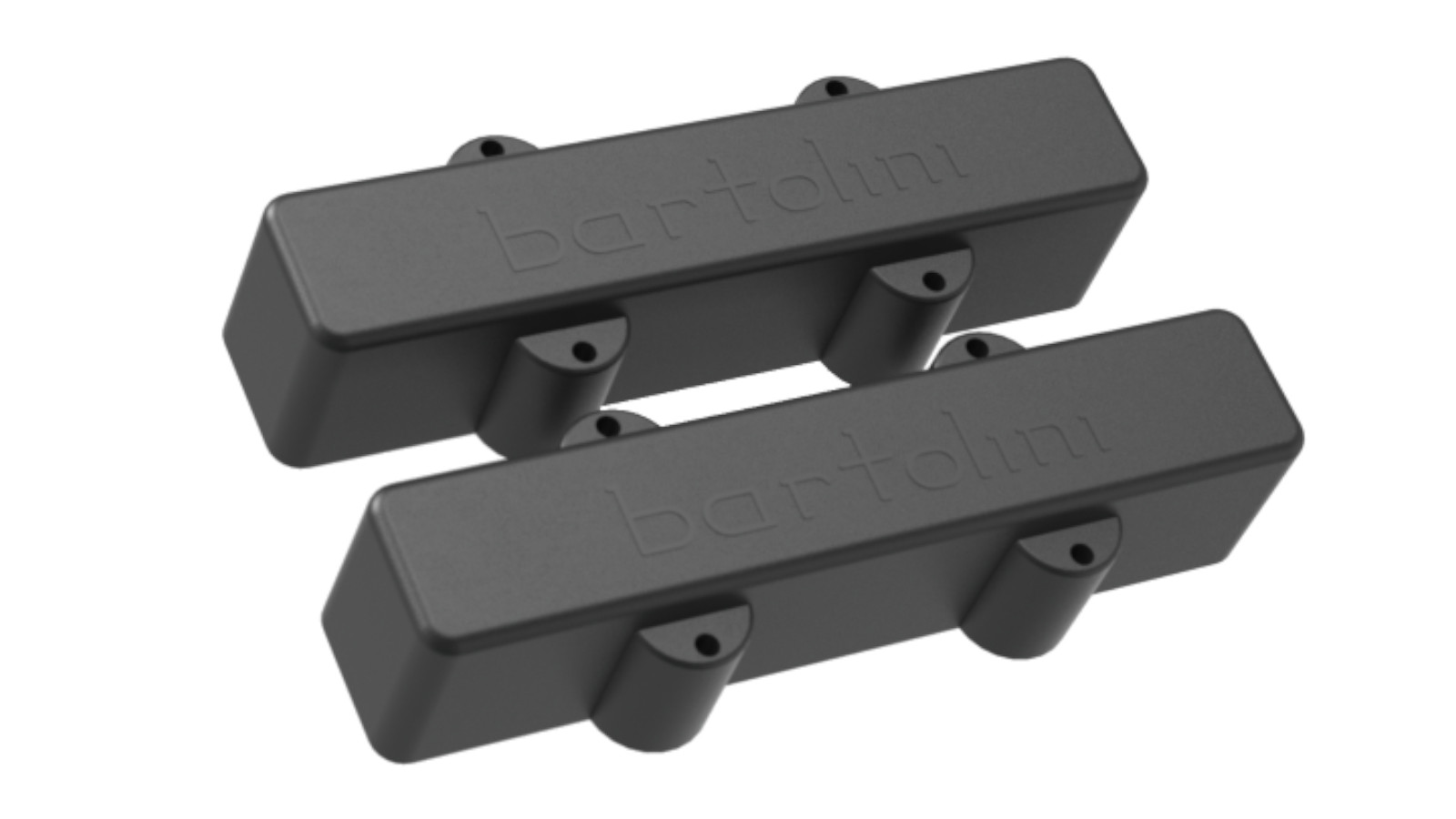
3. Bartolini Original Dual Coil J-Bass
Our expert review:
Specifications
Reasons to buy
Reasons to avoid
If you’re looking to upgrade your Jazz bass without losing any of its character, then these pickups are a great way to do that. Bartolini is an American company and has supplied pickups directly to brands such as Fender, Spector, Lakland, Music Man and many more.
This clever design enables you to get hum-free operation, so you don’t need to worry about any unwanted hiss or background noise when it matters the most, i.e. when you’re on stage or in the studio. This is both when you’re using the pickups blended together, and also when you’re using them individually.
They’ve got lots of vintage warmth to them, but still with that nice, articulate, snappy Jazz single coil tone. They’re basically old-school sounding pickups, but with new-school technology to make them more practical.
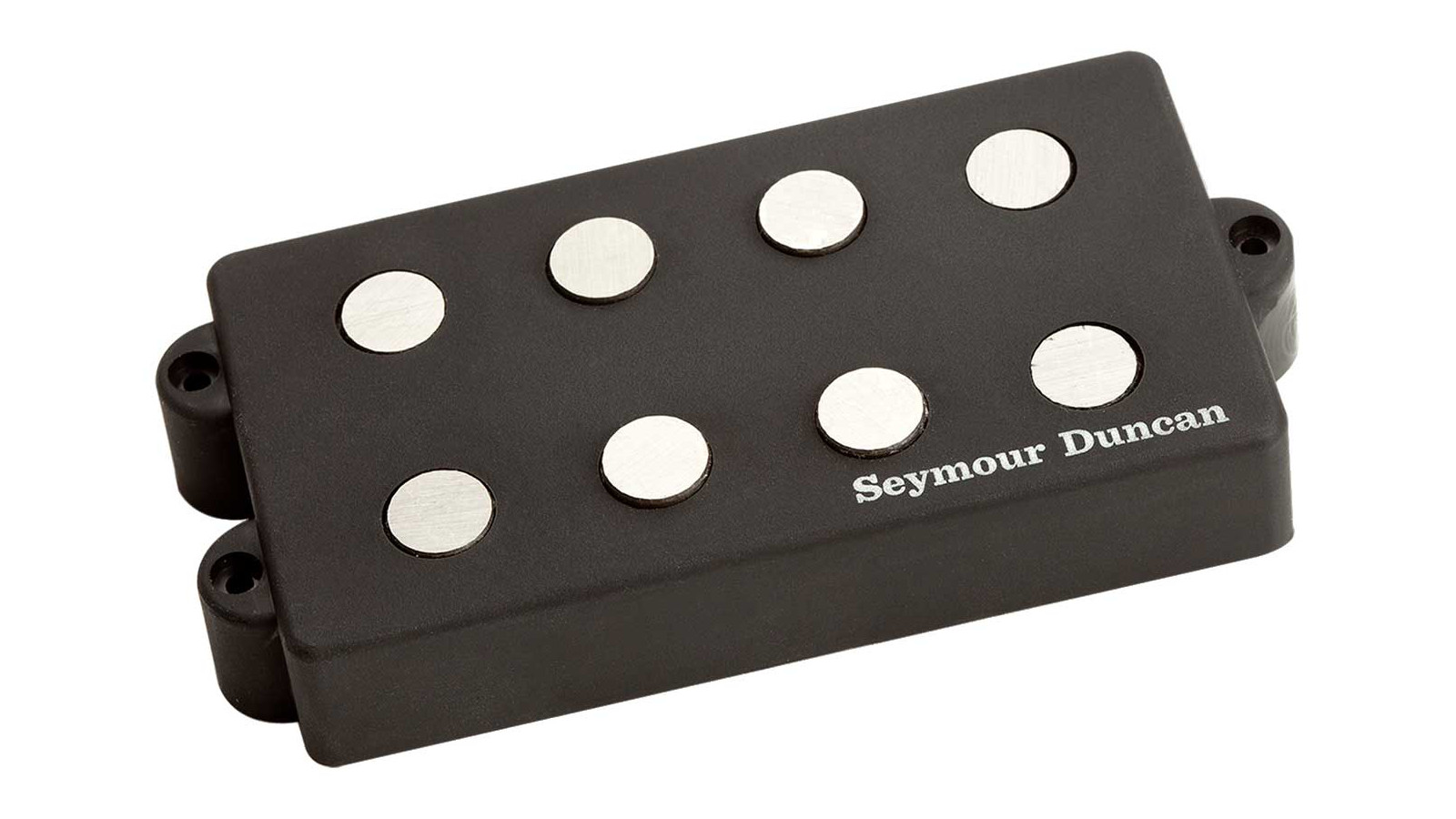
4. Seymour Duncan SMB-4D
Our expert review:
Specifications
Reasons to buy
Reasons to avoid
This has been designed to replicate the powerful punch of those ’90s Music Man Stingray basses. You get an immediate attack, with plenty of clarity and articulation. Notes are clear with top end definition, as well as loads of fat, beefy low end.
The pickup features two big ceramic bar magnets and a custom coil wind, and is hand built by a very specialized team in California. It’s also vacuum wax potted so won’t be prone to squealing if you crank the volume or gain. It comes with a 4-conductor lead wire so you can wire it up with a series/parallel switch.
It’s a really good pickup, and is fairly affordable. It’s also incredibly versatile, with slap funk bassists looking to it just as much as hard-rocking pick users.
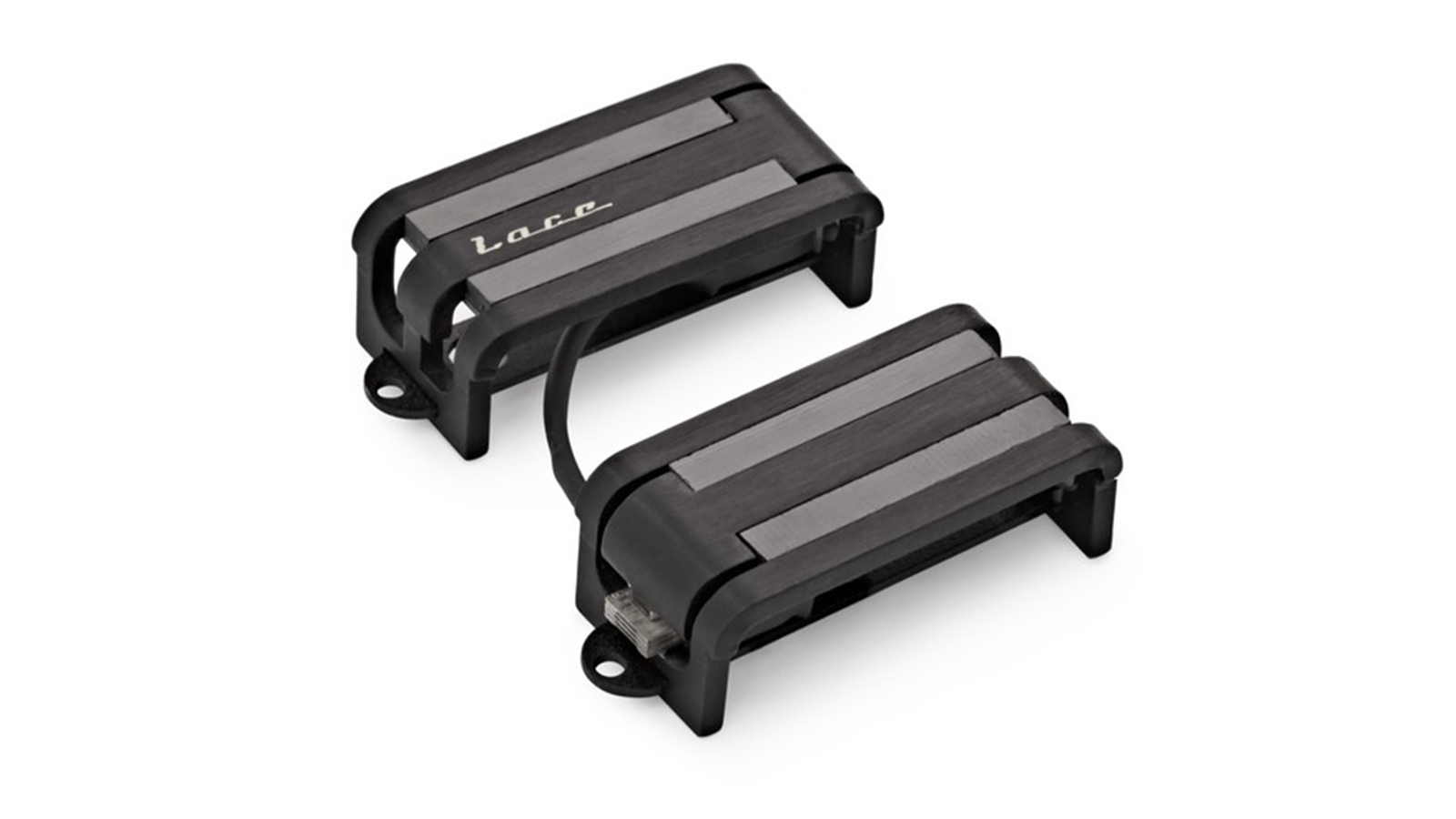
5. Lace Sensor Aluma Bar
Our expert review:
Specifications
Reasons to buy
Reasons to avoid
By taking a slightly different approach to the manufacturing process, Lace Sensor has created a low resistance, high output noiseless pickup that uses 95% copper wire, which is better for the environment. The design they have come up with results in a bass pickup that has a wide frequency range, so a very full low end, with clear and defined highs. Lace describe it as having a piano-like quality to it, but they’re very clean and articulate sounding pickups.
The Lace Alumitone pickups are also very light, so if you’re looking for the best bass pickups to reduce the overall weight of the instrument, then these are the ones! There’s a full range available, so you’ll probably be able to find the right size, no matter what bass you’re fitting them into.
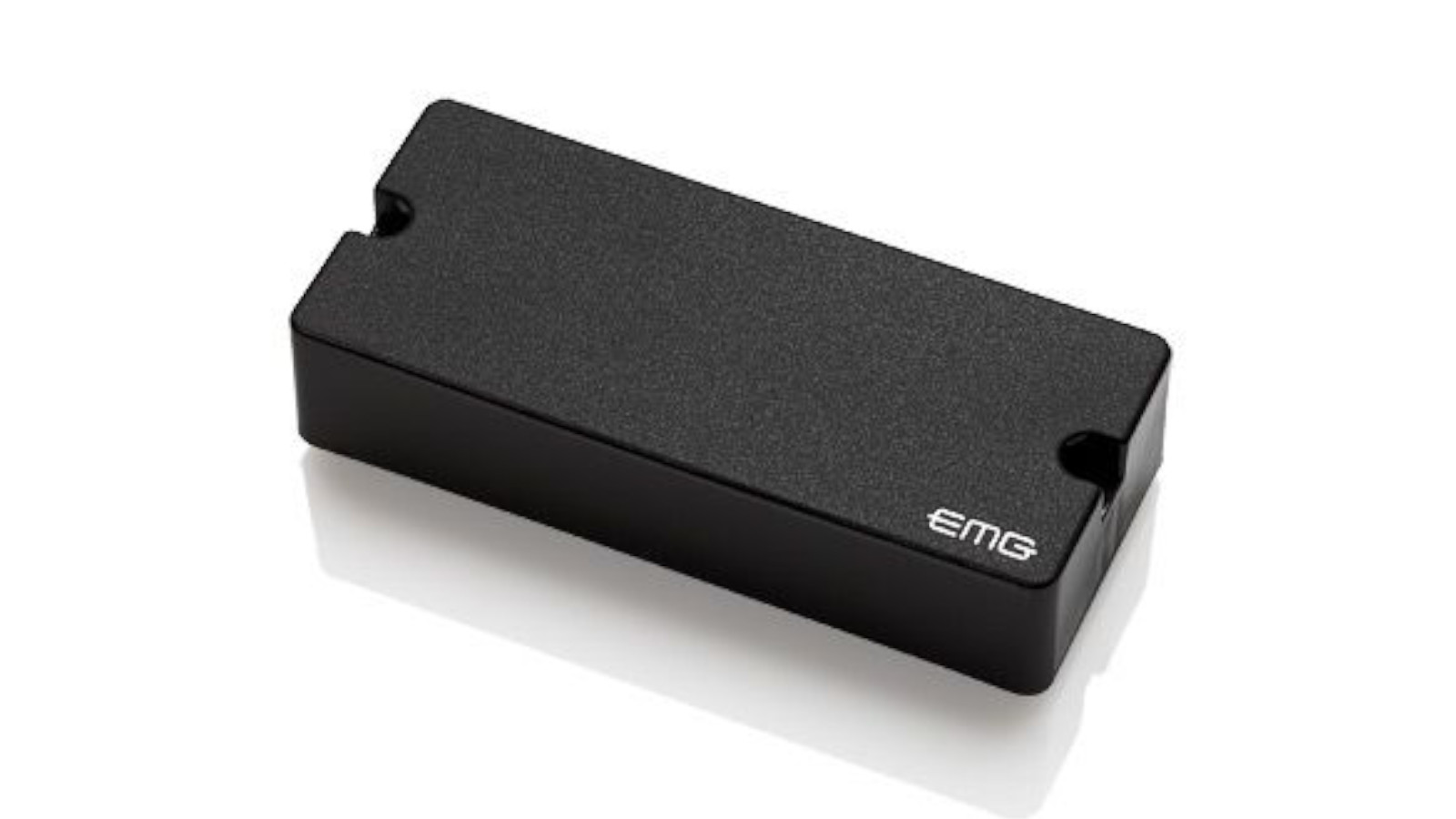
6. EMG 35DC
Our expert review:
Specifications
Reasons to buy
Reasons to avoid
Active pickups, especially ones from EMG, are often touted as being super clear and defined, and these are no exception. With a super hot output, these can absolutely crush when stuck through a distorted rig, whilst retaining clarity and all the important harmonic information you want carried through the mix. You can sound really heavy, but still be heard and keep your low end intact.
It’s got a broad frequency range so if you’re down-tuning, you’re still going to get a good sound, plus the highest notes on your fretboard are going to ring out properly too. If you’re after something hot, punchy, clear and powerful, then the EMG 35DC is one of the best bass pickups to go for.
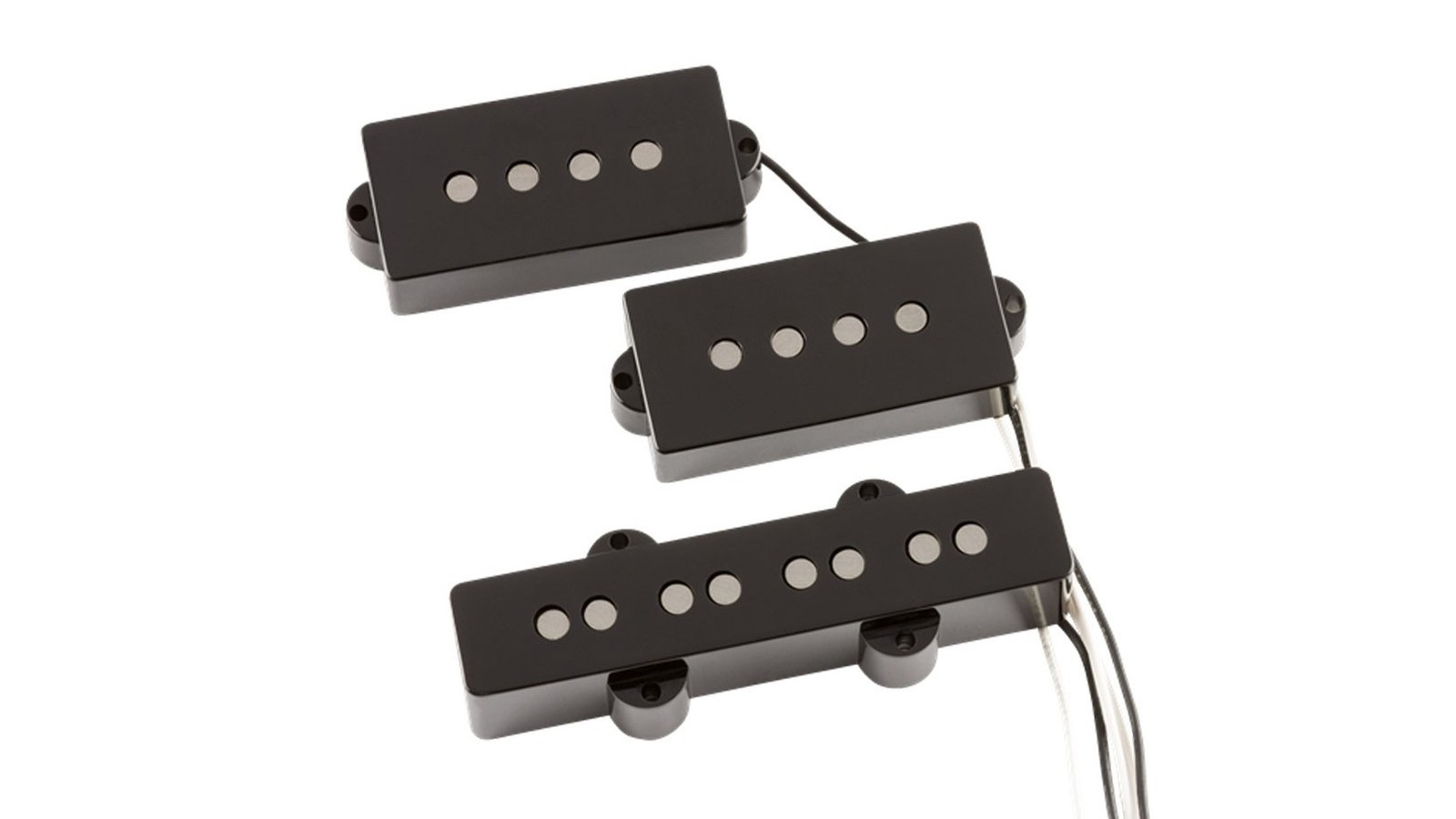
7. Fender Yosemite PJ
Our expert review:
Specifications
Reasons to buy
Reasons to avoid
The Yosemite PJ pickup set blends the powerful low-end rumble of the P-Bass with the snappy, nuanced articulation of the Jazz bass – it really is the best of both worlds.
The Yosemite pickups are fitted in Fender’s American Performer series of guitars and basses. They’re really musical, dynamic and sit in a band mix well. There’s plenty of definition in the top end, but of course very present in the lows too. With your amp set right, they can really growl too. Whether you’re playing rock, funk, blues, soul, pop, jazz and or pretty much anything, these Yosemite PJ pickups are your ticket to low end versatility!
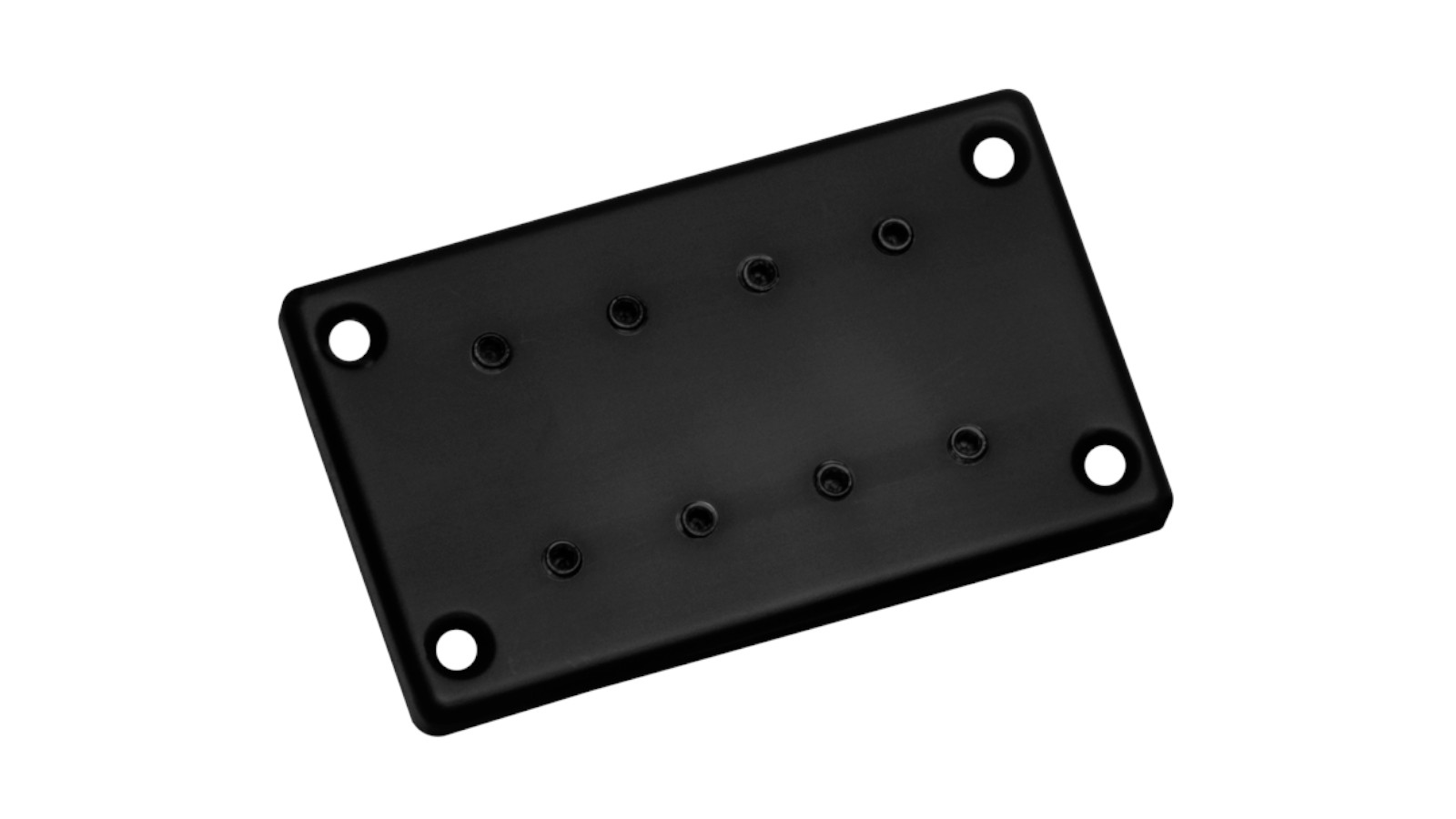
8. Dimarzio Model One DP120
Our expert review:
Specifications
Reasons to buy
Reasons to avoid
This might be a bit of a wild card, but there are players out there that swear by the Model One. It was originally designed as a replacement pickup for the Gibson EB-0, which was sometimes referred to as a mudbucker. Despite this, they actually work very well for certain types of music, for example if you want to really fill the lows and lower mids in a rock trio, then it’s perfect.
It produces a very fat, warm, rounded low end. With the tone up on your bass, it can be really articulate – especially with fresh strings – though if you want that swampy, muddy tone, then you can dial that in too. It’s recommended for the neck position, and can produce some amazing results when paired with a split P-bass pickup. Some people even run this into an 18” sub speaker and the other pickup through their normal rig. Check it out if you’re up for some experimentation!
Best bass pickups: Buying advice
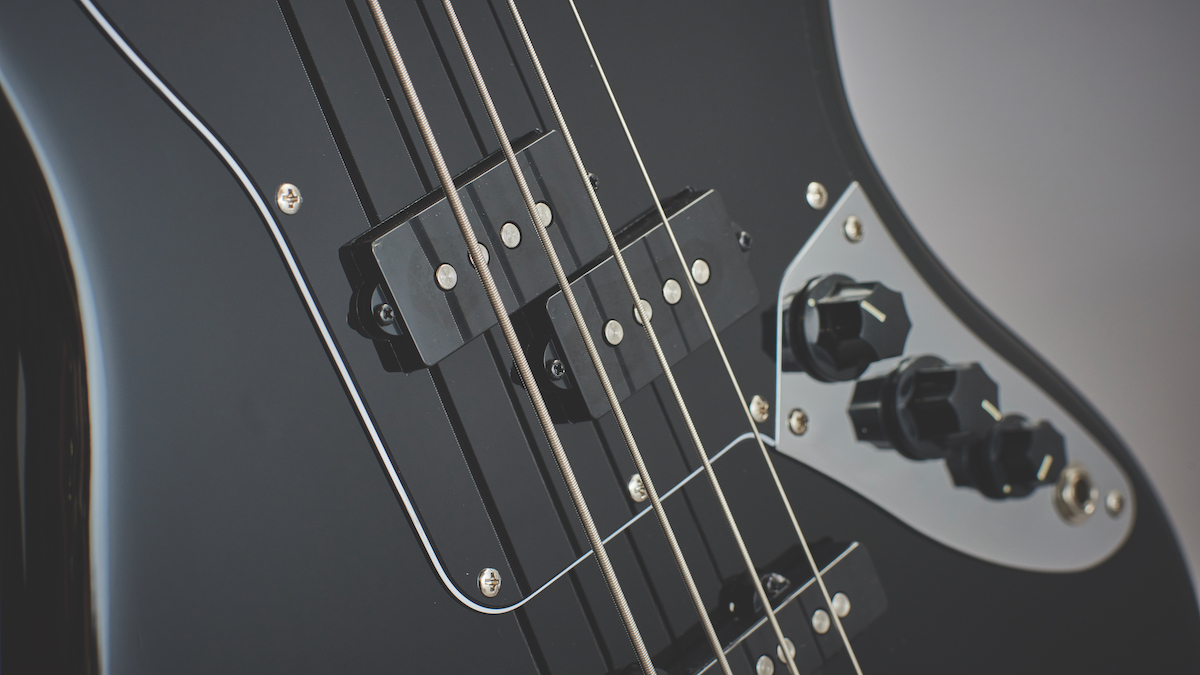
How to choose the best bass pickups for you
You can trust Guitar World
It might seem like an obvious point, but when shopping for the best bass pickups, make sure you know the space you’ve got to fill. It’s probably best to measure up so that you know your new pickups will fit in your bass. Sets like the PJ, or replacements for P or Jazz basses should be fairly straightforward – you should be able to just swap them out, but it’s always best to measure up to check.
However, if you’re absolutely settled on a particular pickup, but it’s not looking like it’s going to fit, you can always route out the body of the bass slightly (or – and this is highly recommended if you don’t know what you’re doing – get a trained professional to do it for you).
It might also be helpful to go through some of the main types of pickups. Within each category, there are lots of different styles; various manufacturers will have different takes on the same thing, but essentially all bass pickups can be categorized as either a single coil or a humbucker. Given that Fender helped shape the modern bass guitar so much, we’ll quickly look at its two most popular types of single coil.
Precision pickups
Starting life in the early ’50s, the Precision, or P-Bass, was one of the earliest electric bass guitars to be made and was the first one to be produced on such a large scale. It features a split-coil pickup that’s usually placed in the middle of the body. It delivers a nice deep, powerful sound with loads of low end. Some players refer to Precision pickups as having a great bassy rumble to the sound.
Jazz pickups
Jazz pickups tend to have a bit more articulation and detail to the sound. They’ve got a quick attack, which makes them ideal for slap bassists, though, like P-style pickups, they’re suited to most types of music. J pickups are also usually quite punchy and a little more balanced.
Humbuckers
Humbuckers on a bass are usually slightly darker sounding, with more going on in the bass and lower-mid frequencies, though that’s not to say they haven’t got top end detail. They tend to have a stronger output too, so you can push a bass amp into natural overdrive more easily. Because of their construction, they are also naturally hum-cancelling – hence the name; they quite literally buck the hum!
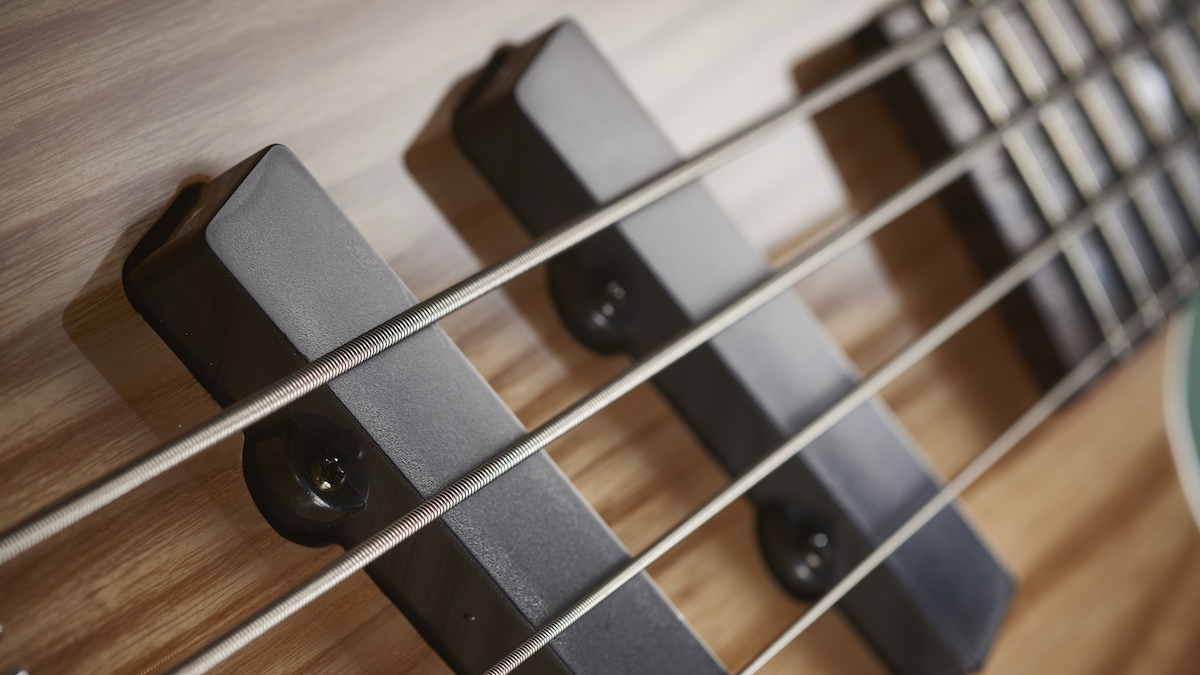
What's the difference between active and passive pickups?
You might be faced with the option of going active or passive with your new bass pickups. Passive pickups are more traditional and let you play with lots of dynamics. If you’re after a classic bass tone, then passive is probably the way to go. Active pickups require a source of power (usually a 9v battery) and are more powerful. They can handle lots of gain really well and still retain clarity, which is why lots of metal bassists choose them. They don’t quite have the same character or subtlety as passive pickups, but it’s whatever works best for you!
How we choose the best bass pickups for this guide
Here at Guitar World, we are experts in our field, with many years of playing and product testing between us. We live and breathe everything guitar related, and we draw on this knowledge and experience of using products in live, recording and rehearsal scenarios when selecting the products for our guides.
When choosing what we believe to be the best bass pickups available right now, we combine our hands-on experience, user reviews and testimonies and engage in lengthy discussions with our editorial colleagues to reach a consensus about the top products in any given category.
First and foremost, we are guitarists, and we want other players to find the right product for them. So we take into careful consideration everything from budget to feature set, ease of use and durability to come up with a list of what we can safely say are the best bass pickups on the market right now.
Read more about our rating system, how we choose the gear we feature, and exactly how we test each product.
Related buyer's guides
- Best bass amps for practice: top combos for working on your chops at home
- Best bass strings: Optimize your tone, feel and lifespan
- Best bass effects pedals: FX for every type of bassist
All the latest guitar news, interviews, lessons, reviews, deals and more, direct to your inbox!
After spending a decade in music retail, I’m now a freelance writer for Guitar World, MusicRadar, Guitar Player and Reverb, specialising in electric and acoustic guitars, bass, and almost anything else you can make a tune with. When my head’s not buried in the best of modern and vintage gear, I run a small company helping musicians with songwriting, production and performance, and I play bass in an alt-rock band.
